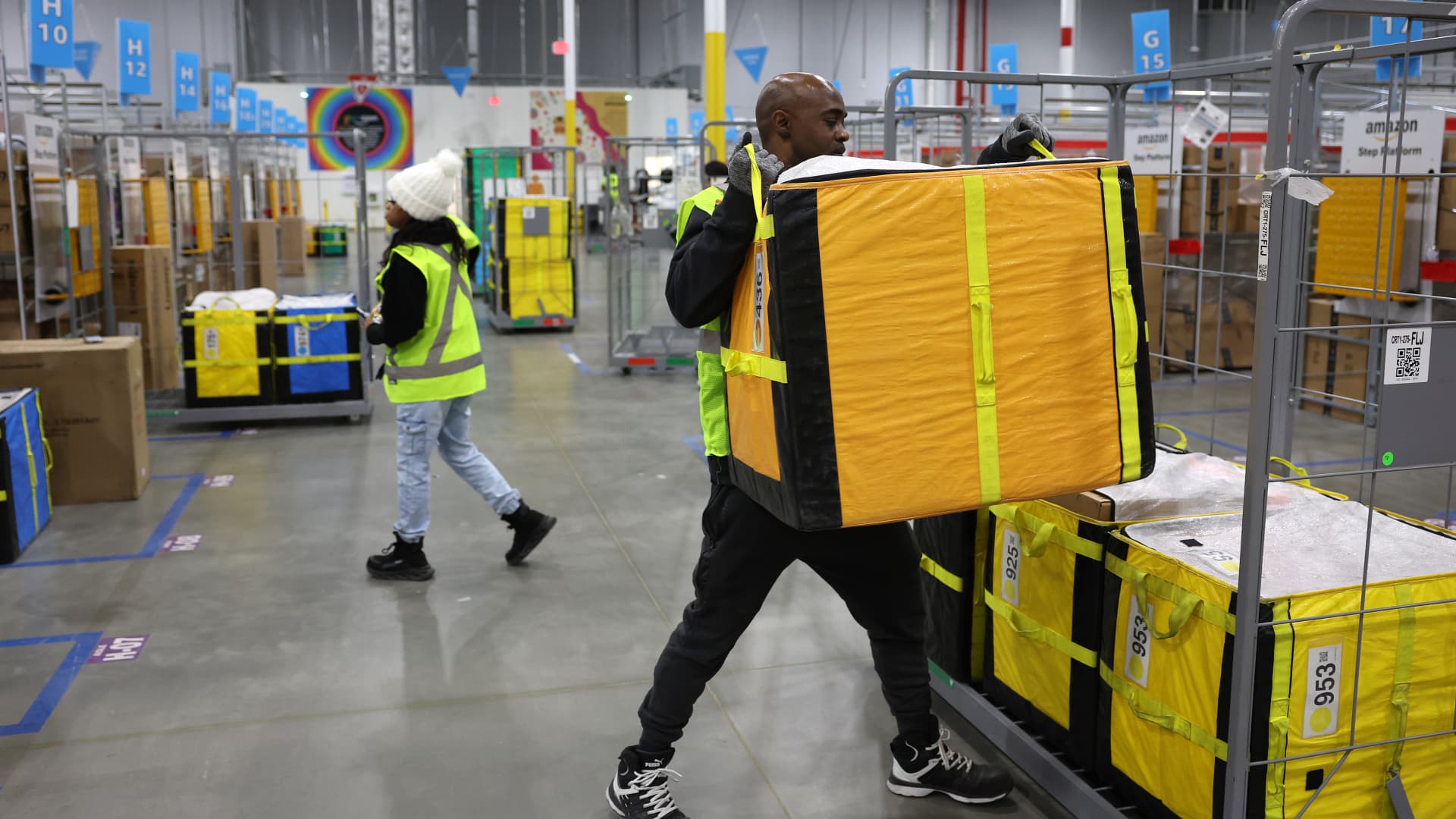Shoppers turned out in full force on Thanksgiving and over the Black Friday weekend, largely shunning physical stores for the comfort of clicking buy online from their couches.
Black Friday online spending reached a record $9.8 billion in the U.S., up 7.5% from a year earlier, according to Adobe Analytics. Online sales on Cyber Weekend, the days between Black Friday and Cyber Monday, surged 7.7% to $10.3 billion. And Cyber Monday sales are expected to reach up to $12.4 billion, making it the biggest U.S. online shopping day of the year, according to Adobe.
The strong showing proved to be a boon for many e-commerce-focused retailers, and their stocks surged Monday as investors cheered the early results. Shares of Etsy and Wayfair closed up about 3% and 7%, respectively, while Amazon stock climbed 0.6%. Shopify shares closed up almost 5% in afternoon trading after the company, which provides software for online retailers, said merchants notched a record $4.1 billion in sales.
Analysts and investors are closely watching sales in the five-day period beginning Thanksgiving Day and ending on Cyber Monday as a barometer for the overall holiday shopping season. The National Retail Federation, a trade group, expects shoppers will spend more this year than last year, with sales in November and December projected to rise 3% to 4% year over year. Even as inflation has cooled, grocery prices are still high, and the resumption of student loan payments has eaten into some consumers’ holiday budgets.
Against that backdrop, budget-conscious consumers have turned to buy-now-pay-later features as a way to stretch their wallets. Buy-now-pay-later services like Affirm, Klarna and Afterpay drove $5.9 billion in online spend between Nov. 1 and 23, up 13.4% from last year, according to Adobe. Shares of Affirm closed up almost 12% on Monday.
Klarna CEO Sebastian Siemiatkowski said in an interview on CNBC’s “The Exchange” that the company was “quite shocked” to see the strength of buy-now-pay-later services during Black Friday.
“It just shows how much market share both buy-now-pay-later and Klarna is gaining in the market,” Siemiatkowski said. I think it’s both share of checkout, it’s more merchants offering it, and more consumers choosing it in general.”
New e-commerce entrants such as short-form video app TikTok and the discount-laden Chinese online marketplace Temu have sought to capitalize on the holiday demand by running their own heavy promotions. TikTok, which launched its TikTok Shop storefront in the U.S. in September, dangled free shipping and discounts between 20% and 30% off on a slew of items, ranging from Farmacy moisturizer and Blue Bottle Coffee instant espresso powder, to virtually unknown brands like “BEDSUM” silk pillowcases “Terviiix” hairbrushes.
Temu, a bargain basement that features a mix of apparel, household, electronics and beauty goods ranging from odd to cheaper lookalikes of established brands, had its own Black Friday and Cyber Monday deals. It hawked discounts of up to 90% off on products in several categories, including a “Cyber Week Clearance” starting at 39 cents for some items. A plastic rice washing bowl, listed as one of the top-selling Cyber Week items, is discounted 68% to $1.89 with free shipping.
